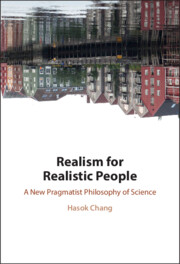Chapter 4 - Truth
Published online by Cambridge University Press: 08 November 2022
Summary
There are many different things we mean when we say that something is true. What is the relevant sense of truth operative in actual practices, and in the actual judgements that we make concerning the epistemic quality of propositions? It is helpful to start with a distinction between secondary truth (which is grounded in the truth of other propositions), and primary truth (which is not). Concerning the meaning of primary truth in empirical domains, I propose the following definition: a proposition is true to the extent that there are operationally coherent activities that can be performed by relying on it. This ‘truth-by-operational-coherence’ is not a matter of binary yes-or-no, but a quality with many dimensions. It also provides secure underpinnings for epistemic pluralism: mutually incommensurable systems of practice can each contain a set of propositions that are true-by-operational-coherence. Through this notion of truth we can also rehabilitate James’s pragmatist theory of truth.
Keywords
- Type
- Chapter
- Information
- Realism for Realistic PeopleA New Pragmatist Philosophy of Science, pp. 163 - 203Publisher: Cambridge University PressPrint publication year: 2022

